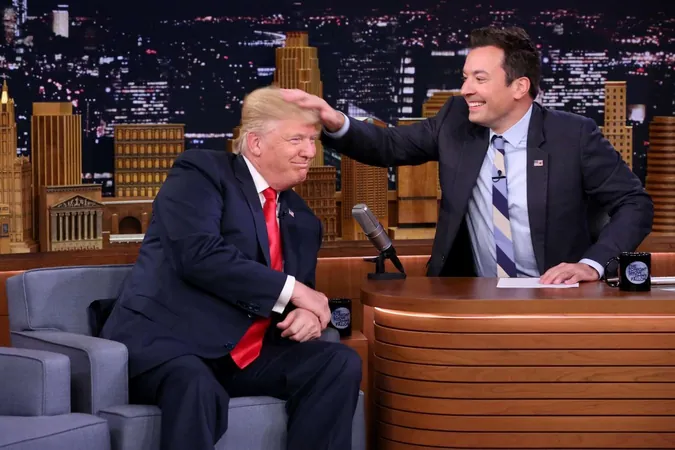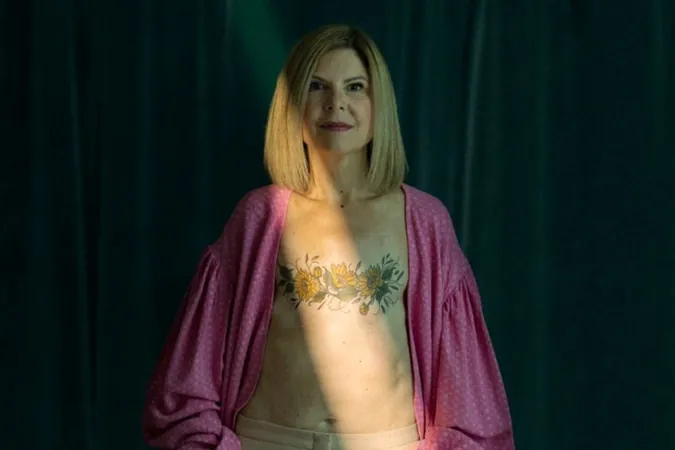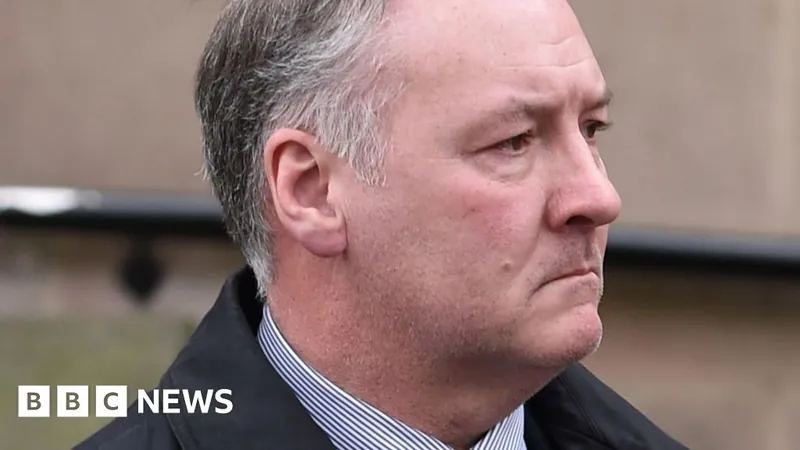
Trump Claims Late-Night Shows Are Failing, Yearns for Johnny Carson
2024-09-25
Trump's Critiques of Late-Night Television
In a recent campaign rally in Pennsylvania, Donald Trump took aim at America's late-night television scene, declaring that shows led by Jimmy Fallon, Stephen Colbert, and Jimmy Kimmel are 'all dying.' The former president lamented, 'Where is Johnny Carson? Bring back Johnny.' This reminiscent call for Carson—a legendary late-night host who passed away in 2005—has sparked considerable buzz across social media.
Targeting Jimmy Fallon
Trump didn't hold back on his critiques, specifically targeting Fallon, whom he believes has strayed from the comedic essence that once defined late-night television. During the rally, Trump showcased a clip of Fallon interviewing Democratic candidate Kamala Harris, making a jab at the host’s comedic chops by saying, 'He’s not very funny.'
Fallon and Trump's Complicated History
The tension between Trump and Fallon dates back to 2016 when Fallon invited Trump onto The Tonight Show. A moment that was lighthearted at the time, when Fallon famously tousled Trump's hair, later became a point of contention. Following the appearance, Fallon faced backlash for what some perceived as a moment that 'humanized' Trump. In hindsight, Fallon expressed regret for the way he handled that interview, stating, 'I made a mistake… I would do it differently.'
Social Media Reactions
As Trump's remarks about late-night hosts gained traction, witty commentary on platforms like X (formerly Twitter) began to emerge. Some users poked fun at Trump's age and confusion over Carson’s absence, with quips like, 'Gen Z doesn’t know what Grandpa Trump is talking about.'
Criticism of Current Late-Night Landscape
Interestingly, Trump's comments on Fallon and his contemporaries arrive amid widespread criticism of the current late-night landscape, where the presence of political satire has intensified, especially concerning Trump's own tumultuous presidency and ongoing legal troubles. Fallon, Colbert, and Kimmel have frequently used their platforms to lampoon Trump, particularly surrounding topics such as his hush-money case.
Shifts in Audience Preferences
Additionally, the late-night format has faced challenges, exemplified by Fallon struggling to maintain viewership, now operating on a reduced schedule of just four nights a week. Trump’s assertion that these shows are 'being blown away' by Fox News’ Greg Gutfeld suggests a shift in audience preferences that may underscore a larger existential crisis within the traditional late-night model.
The Nature of Trump's Relationships
As Trump's campaign continues, his penchant for holding grudges against anyone who criticizes him remains apparent. At the rally, he remarked, 'I don’t like anybody that doesn’t like me… Call it a personality defect.' This admission continues to define his combative relationship with the media and entertainment figures.
The Future of Late-Night Television
In a political environment where humor and satire play crucial roles, the fate of late-night television seems precariously tied to public sentiment and the evolving landscape of media consumption. Whether Trump's nostalgic call for Johnny Carson will resonate with viewers or catalyze a rejuvenation in late-night programming remains to be seen.









 Brasil (PT)
Brasil (PT)
 Canada (EN)
Canada (EN)
 Chile (ES)
Chile (ES)
 España (ES)
España (ES)
 France (FR)
France (FR)
 Hong Kong (EN)
Hong Kong (EN)
 Italia (IT)
Italia (IT)
 日本 (JA)
日本 (JA)
 Magyarország (HU)
Magyarország (HU)
 Norge (NO)
Norge (NO)
 Polska (PL)
Polska (PL)
 Schweiz (DE)
Schweiz (DE)
 Singapore (EN)
Singapore (EN)
 Sverige (SV)
Sverige (SV)
 Suomi (FI)
Suomi (FI)
 Türkiye (TR)
Türkiye (TR)